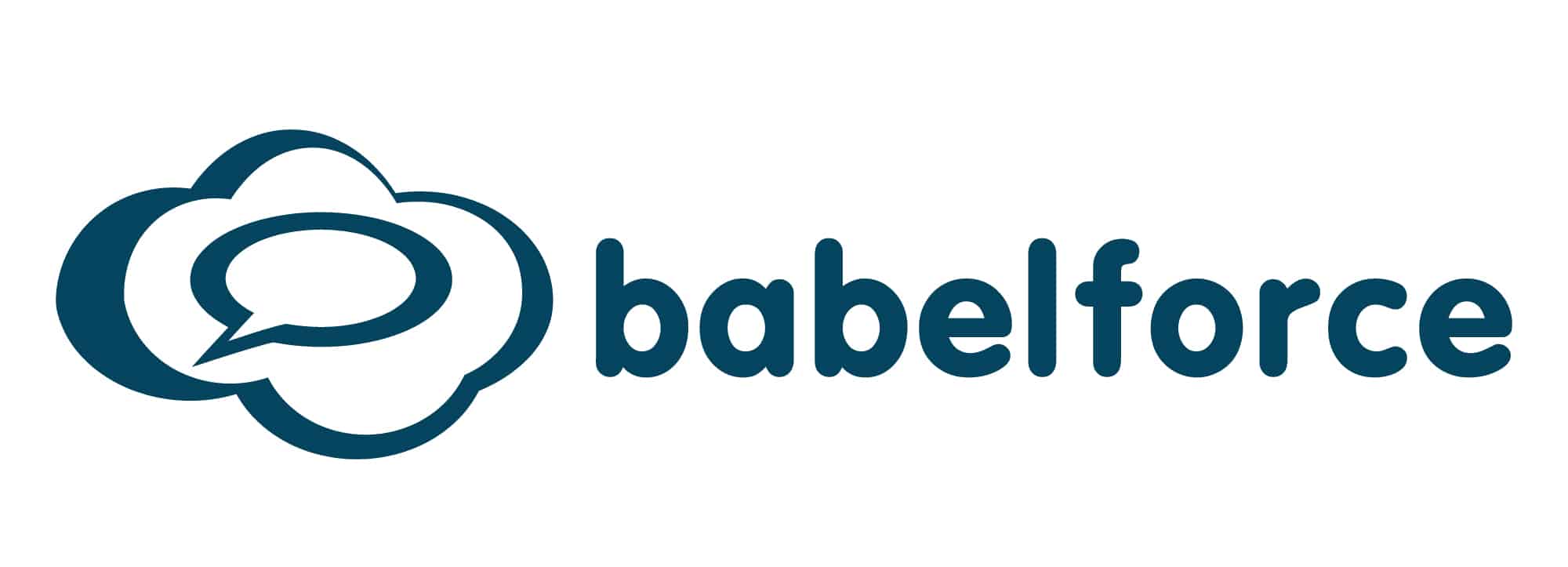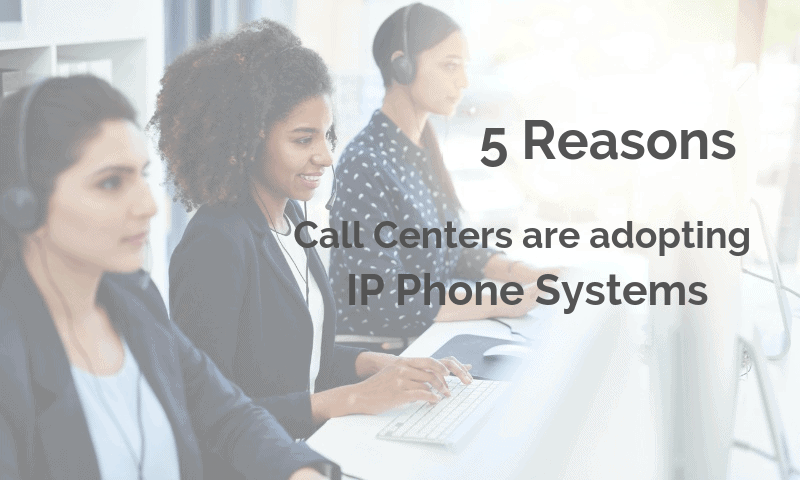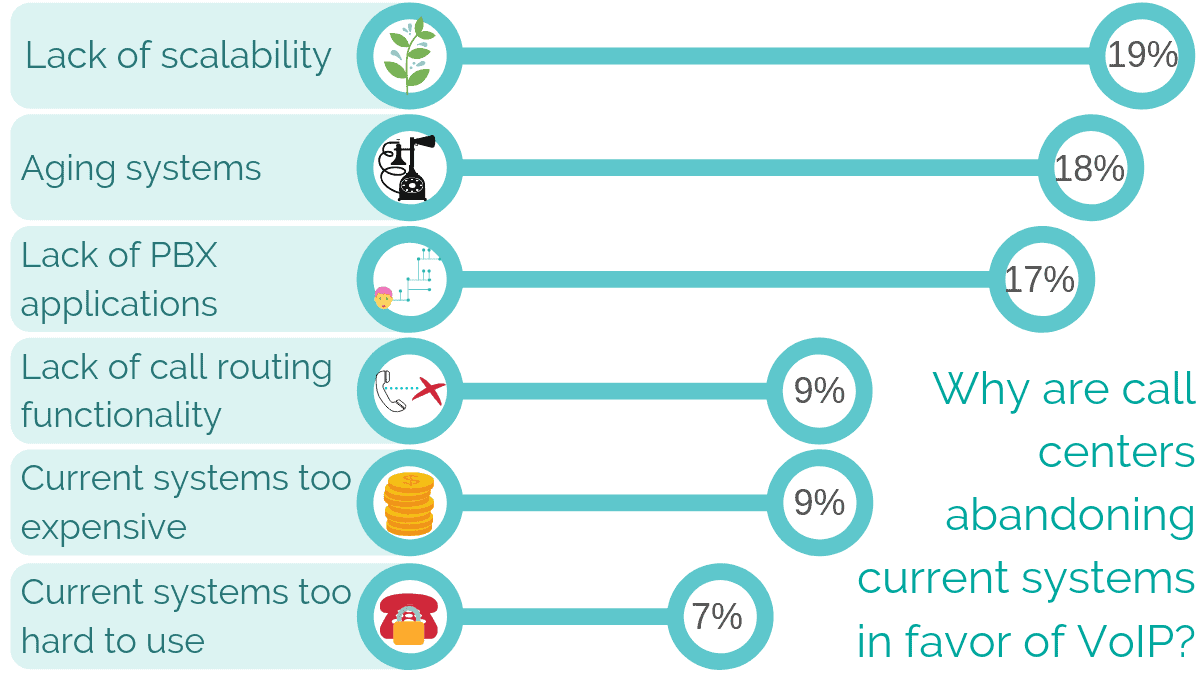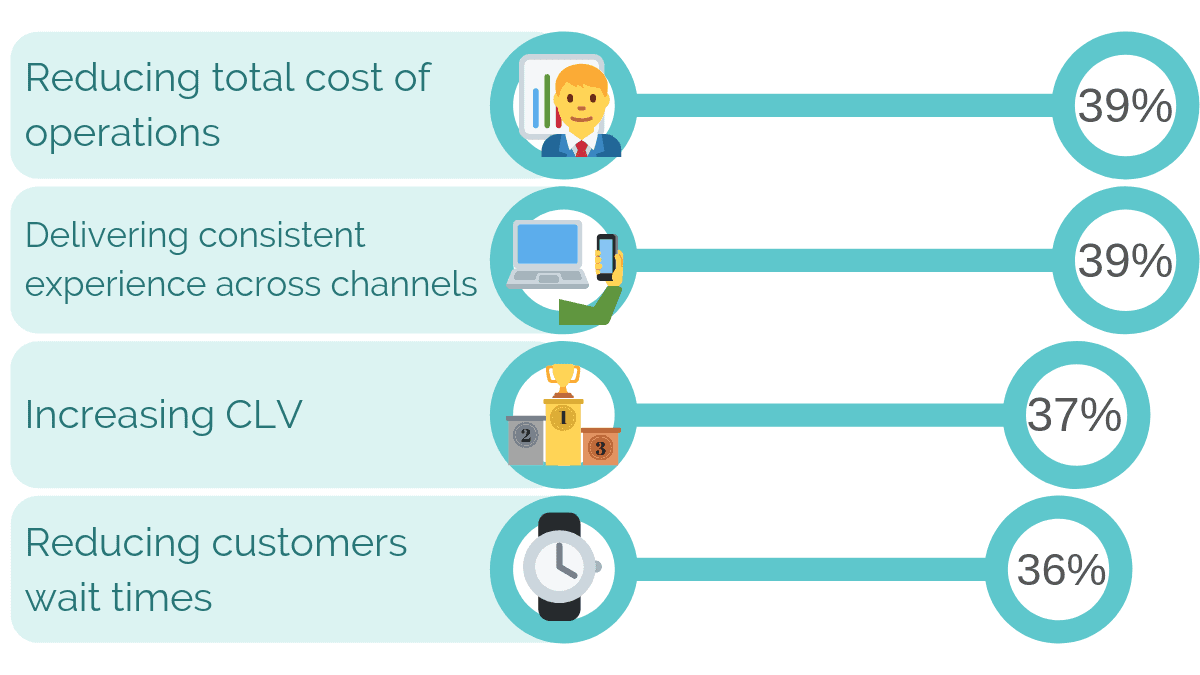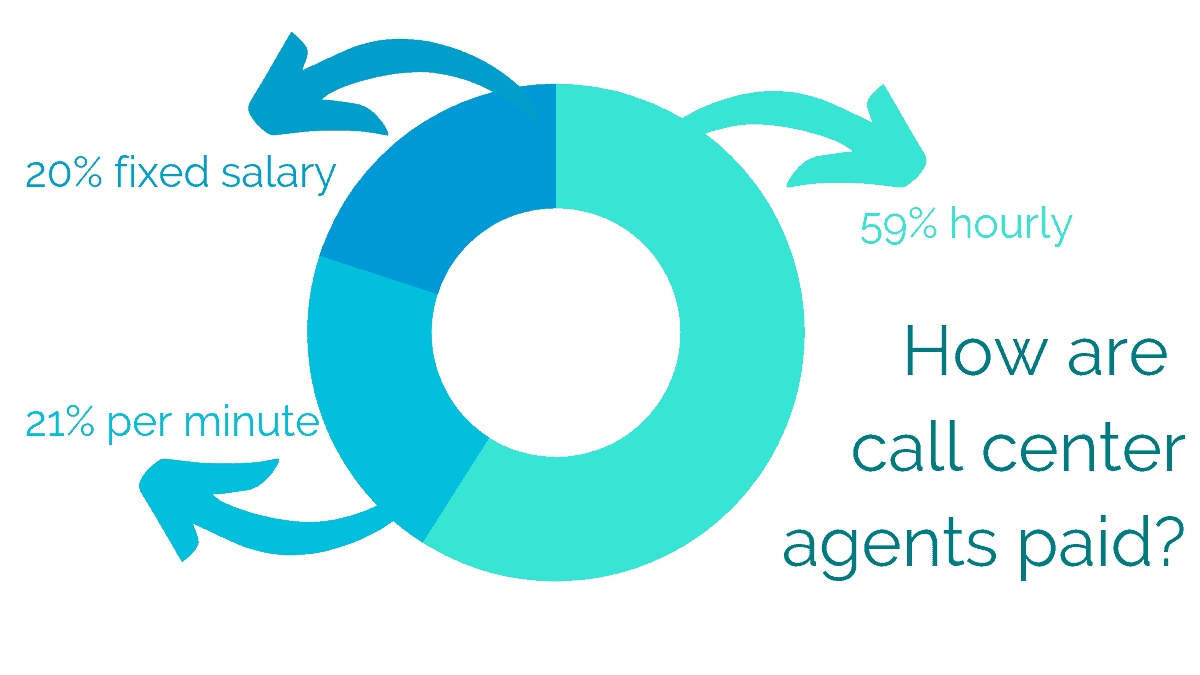There’s always some new piece of tech for the call center to consider. But something as fundamental as the phone systems can feel a bit… risky?
Plenty of call centers have already made the switch to IP phone systems and are reaping the rewards.
Let’s take a look and see what those rewards are.
#1 IP phone systems boost scalability
There’s a famous quote etched into the minds of professionals in every industry: ‘if you’re not growing, you’re dying’.
Do you believe it? It does make sense; when you’re part of a growing industry, standing still is the same as shrinking.
However – call centers and the customer service sector know a thing or two about over-simplified metrics. We know that every time you judge success on something basic, you miss something fundamental.
In this case, it’s what scalability really means. Although it’s often used to stand in for ‘growth’, scalability is really flexibility. It’s about changing size to meet demand, which can go in either direction.
Around a third of businesses are focusing on their ability to scale with demand in 2019. They’re investing in things like cloud services, automation and – you guessed it – IP phone systems.
Call centers deal with a lot of variables. Work can be seasonal and product runs can end.
#2 IP phone systems save you money
Let’s be honest – cost is the factor driving almost every business decision. Of course, switching to IP phone systems means an upfront investment and some disruption to service too.
So businesses wouldn’t be doing it if the financial incentive wasn’t there. According to some research, making the switch to IP telephony saves a 30 seat call center around $1200 per month.
That alone will convince a lot of eagle-eyed execs to make the change. Of course, we need to put a huge caveat on this claim. Only the right provider with the right communication solutions will save you money. So do the research first!
The big savings that VoIP systems offer can be especially appealing to new businesses. They don’t need to worry about disruption, and any savings made on telephony can be put to use elsewhere. (Upgrade the coffee machine perhaps?)
In fact, some new businesses are able to reduce the upfront cost of telephony 90% by choosing VoIP. So long as you have the right vendor, it’s a no-brainer.
#3 IP phone systems integrate with your computers
Computer telephony integration (CTI) has gone beyond a nifty feature. Now, having weak integration (and manual processes) is a major burden.
But IP phone systems already speak the same language as your call center software and that opens up a lot of different use cases. Let’s take an example of a really simple one: click to dial.
With CTI, you can look up a customer in your CRM software and click on their phone number to start a call. Across just a few agents and a few days, it makes a pretty big difference. Across a whole call center that difference is enormous.
Other use cases are more sophisticated. Take the same integration between telephony and CRM, but for inbound calls. The CRM can recognise the phone numbers of callers and look them up to identify potential reasons for their call. That can lead to a far superior call routing experience for callers.
And this is surprisingly fertile ground for competition. Barely more than half of call centers have this simple feature.
#4 IP phone systems don’t tie you down
Thanks to technology, physical location means less and less to businesses. This has been the case for call centers for many years, with commercial cycles bringing them in and out of different territories.
Now there’s a new trend emerging, in the form of remote agents. Personally, I was taken aback to learn that over half of American businesses have at least some remote agents on staff.
Remote agents tend to be older, more productive more qualified and cheaper. Diving into the cold water might seem daunting at first, but it looks like most businesses find it quite refreshing.
The real stand-out statistic is that remote agents in the US have a retention rate of 80%, compared with 25% for on-site agents. (That’s one of the ways they’re cheaper.)
And, of course, this is all made possible by IP phone systems. Effectively, businesses can set up a lot of single-person call centers wherever they need to with very little fuss.
#5 IP phone systems are easy to set up
Full disclosure – for a tech novice, it might not seem that simple to set up a phone system. But don’t be put off.
Do you have the tech knowledge in-house? If you do, there’s no problem. But if you don’t, that just means you need a provider who’s able to take point on installation.
What else? Well, obviously you need a high-speed internet connection with a decent upload speed. (It’s a fairly typical mistake to look at download speed only. Remember, this is for making phone calls, not torrenting episodes of The Office.)
If tech challenges are making you at all uneasy about switching to IP phone systems, just bear this in mind: VoIP is now the most widely used type of phone system for businesses. If they can do it, you can do it.
